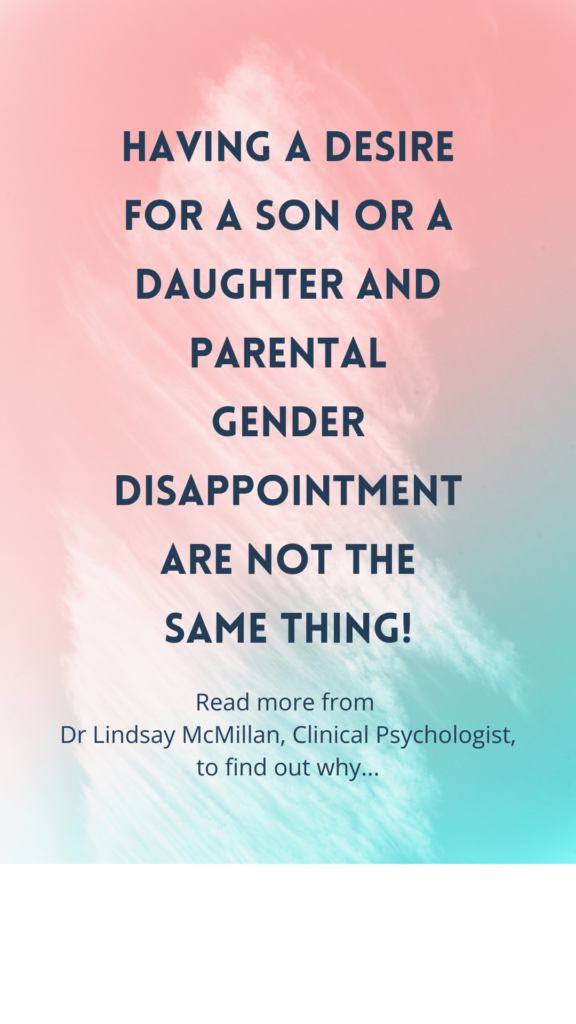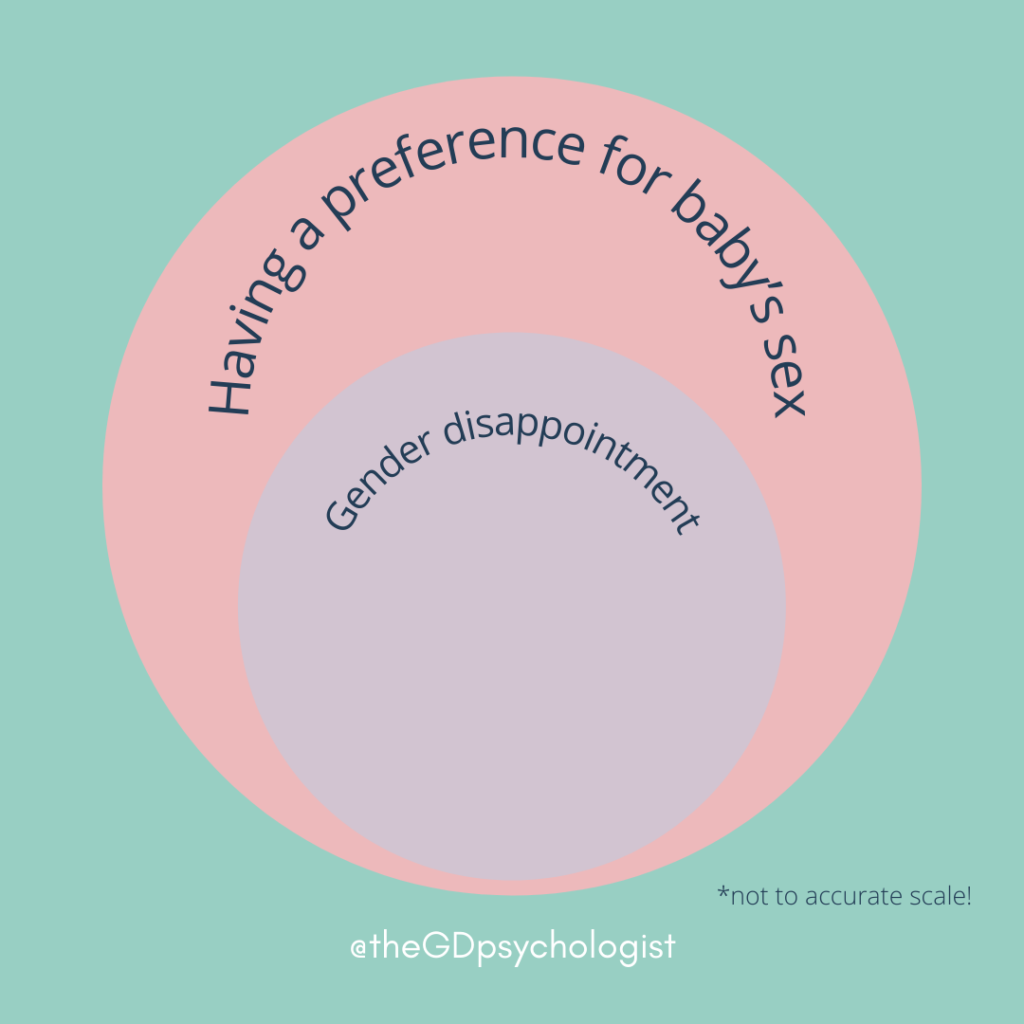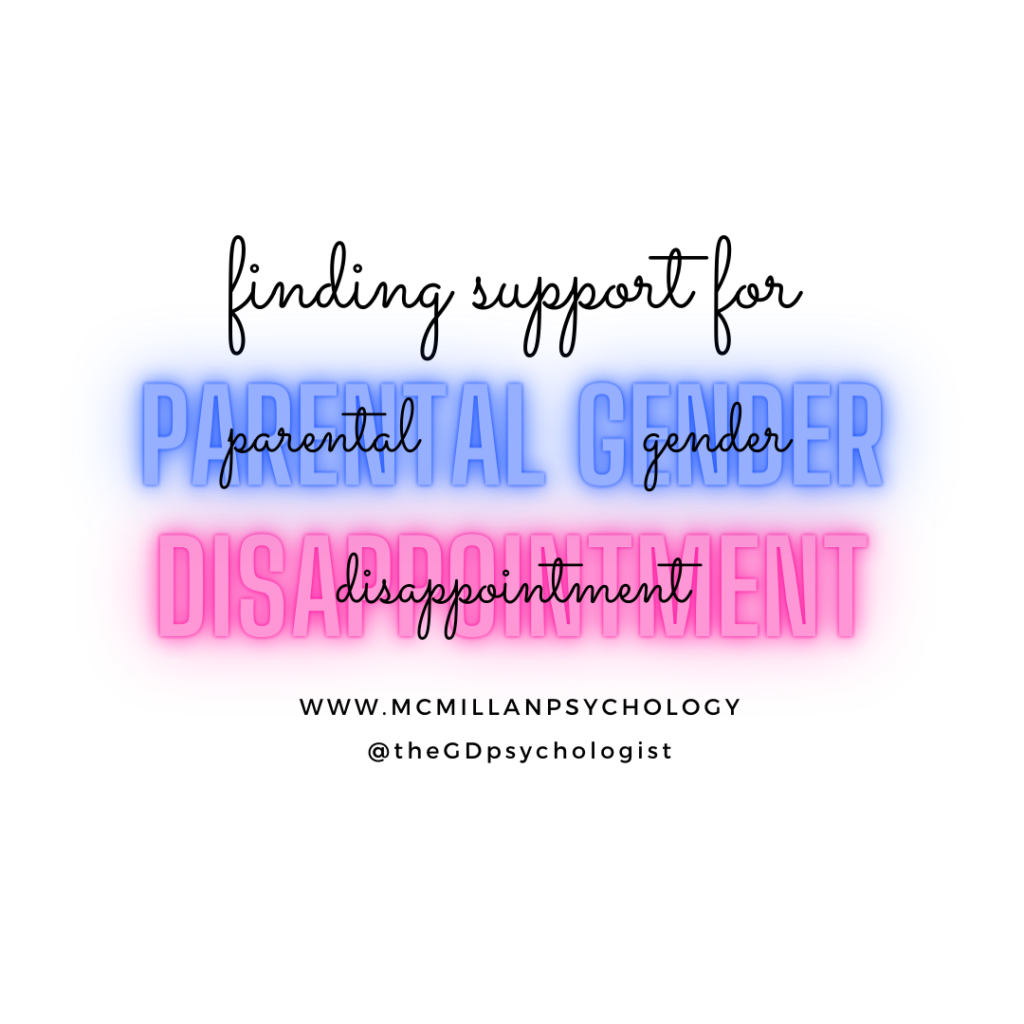
Part One – Dr Lindsay McMillan, Clinical Psychologist, opens up conversation around the more common experience of parents holding a preference or desire for daughters or sons, which for some – if their preference does not come true – can lead to feelings of grief, sadness, anxiety or distress (parental gender disappointment).
Photo by eberhard ? grossgasteiger on Unsplash
Is having a preference for a son or a daughter something you identify with, no matter the outcome?
Holding a desire to parent a son or a daughter is a topic rarely discussed openly by parents or professionals. However it is not uncommon at all for parents to have thoughts (or be asked by others) about whether they would like a girl or a boy.
Yet, the topic of Parental Gender Disappointment remains an unspoken, taboo, stigmatised parenthood experience for many.
Parental Gender Disappointment – the upset, pain, grief or distress felt when baby’s sex does not match a parent’s preference – is shrouded in stigma and often described as a taboo subject, not to be spoken about out loud. It is an experience often misunderstood by others which can lead to negative comments (‘You should just be happy to have a baby!’). Parents experiencing gender disappointment often worry about voicing aloud their own thoughts and feelings, painfully predicting a negative response from others which fuels the guilt and shame… and silence.
It all starts with a preference…
At the heart of gender disappointment lies a preference for baby’s sex.
After all if there was no preference, there wouldn’t be distress in relation to the sex of baby.
…but distress related to the sex of baby is not experienced by all.
Not all parents who have a preference for the sex of their baby will later feel some level of distress. Some will go on to have a baby of their desired sex.
Let’s do the maths…
Say, 100 parents have a preference for a son and for ease, let’s assume there is a 50/50 split in boys and girls. 50 parents would have their son and not identify with GD. 50 parents would have a daughter and may experience some level of upset that their preference has not been attained – gender disappointment.
Let’s say, another 100 parents have a preference for a daughter
And for ease, we’ll assume again there is a 50/50 split in boys and girls
50 parents would have their daughter and not identify with GD.
50 parents would have a son and may experience some level of upset that their preference has not been attained – gender disappointment.
So now we have 100 parents who have a baby of their desired sex
and 100 parents who may identify with the experience of gender disappointment
but all 200 parents would recognise that they had a preference for their baby’s sex.

Do you think that it would be easier to acknowledge gender disappointment if we first talked more openly about parents having a preference for the sex of their baby?

With over 16 years experience of working with adults, families and parents, the last 9 years as a qualified Clinical Psychologist, Dr Lindsay helps Mums and Dads (individually or as couples) navigate complex emotions, life experiences and challenges to emotional wellbeing, at any parenthood stage.
She is proud to be a Champion for Make Birth Better, an organisation dedicated to reducing the life-changing impact of birth and perinatal trauma as well as to be a ‘HG-Friendly Practitioner’ for the charity Pregnancy Sickness Support.
Dr Lindsay holds a specialist interest in supporting parents with Gender Disappointment – when baby is not the sex, or gender, very much hoped for.
Clinical Psychologists are trained and experienced in delivering a variety of evidence-based psychological therapies and so largely one approach or a more integrative approach, drawing on ideas from different therapies, can be used to suit your personal needs and goals.
You can find me writing about Parental Gender Disappointment on Instagram @theGDpsychologist and my blog, here on www.mcmillanpsychology.com. I can also be found on Instagram @mcmillanpsychology
Please note that theGDpsychologist blog is for psychoeducational purposes and is not the same as or to replace therapy. If you are struggling with your emotional wellbeing, please discuss with your health professional such as your GP, midwife or health visitor who can support you to access local NHS services.
If you would like to access private therapy, in person with Dr Lindsay (South Manchester, UK) or online, please email [email protected] for more information.
If you are a Health or Mental Health Professional who works with parents or parents-to-be and would like to think about how you can support those experiencing Parental Gender Disappointment, Dr Lindsay offers psychologically informed Consultation sessions. Please email [email protected] for more information.


